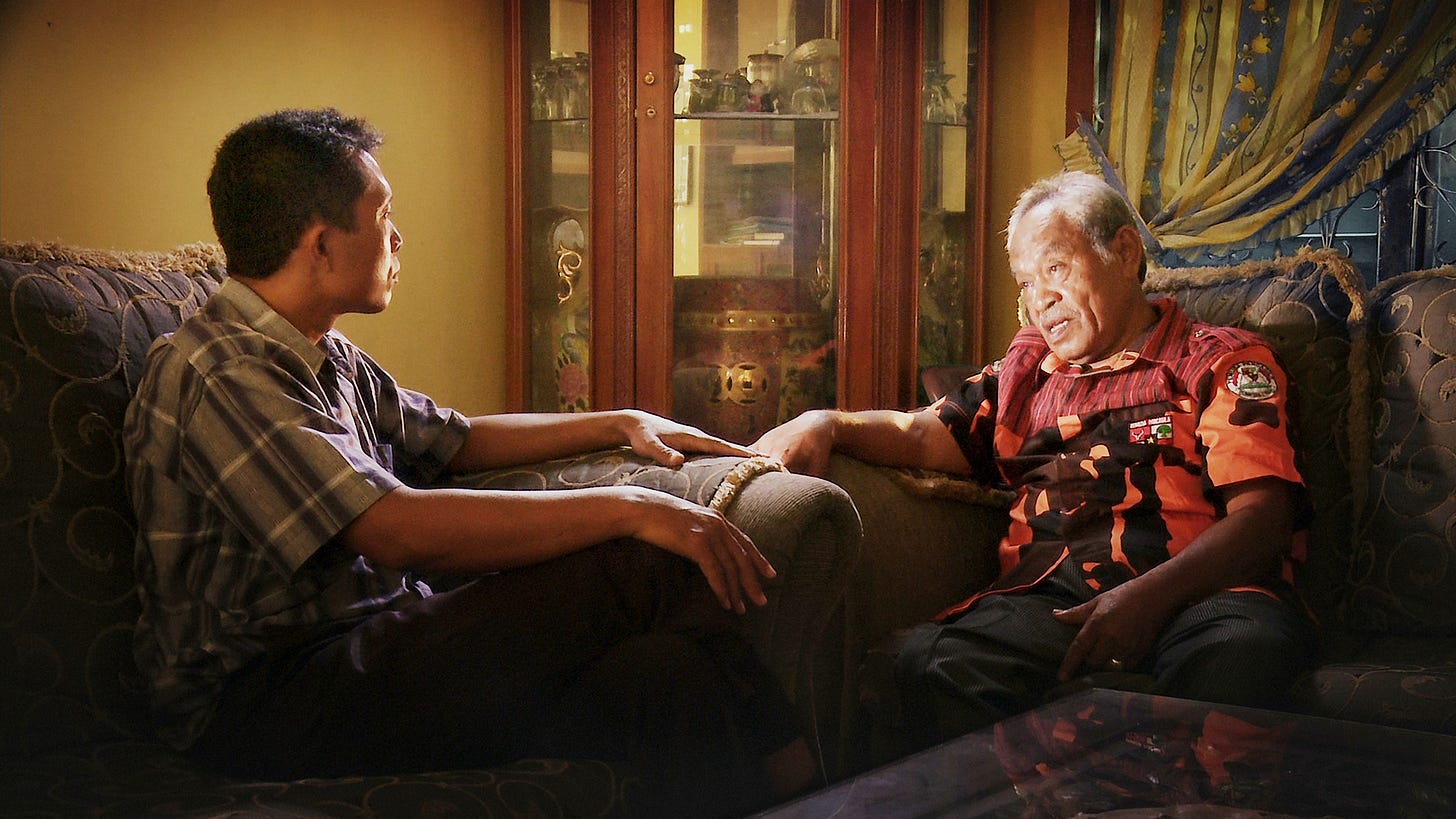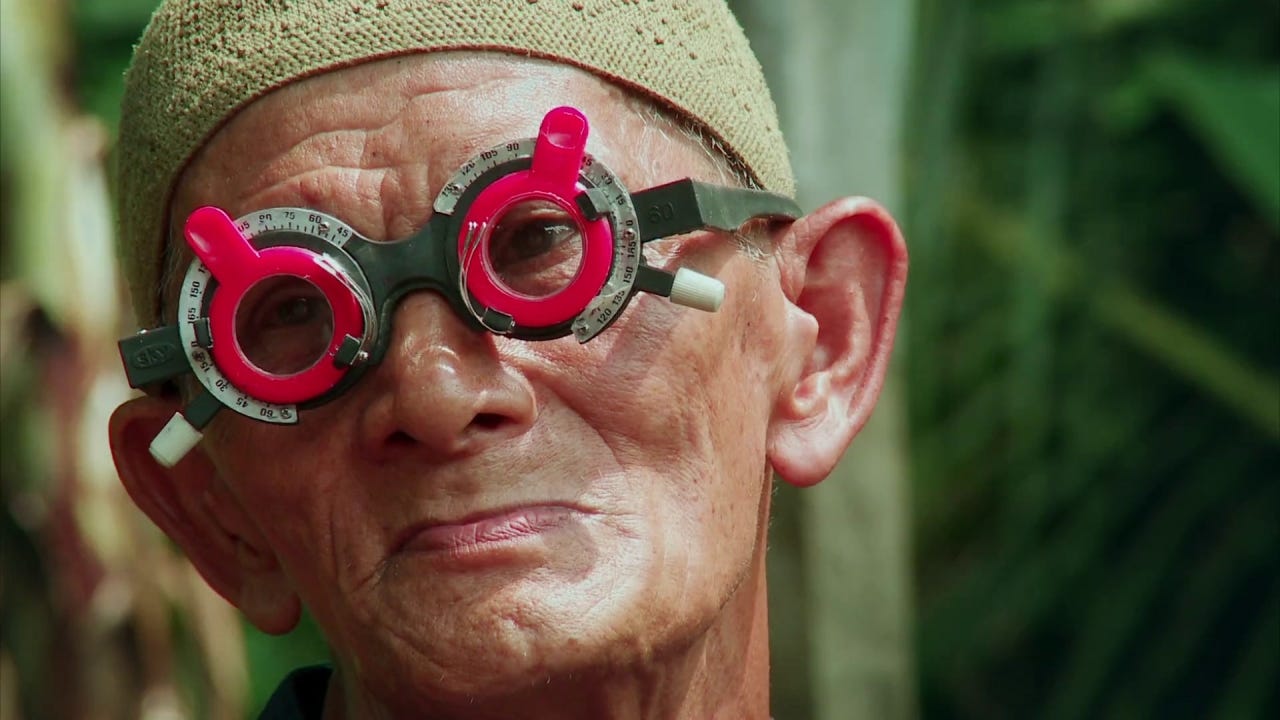I am depressed.
I started this Substack in the hopes I might make a small difference, I might remind people voting in last fall’s election that there is a connection between the empty provocation of mass incarceration and the possible election of Donald Trump to a new term. I was egotistical, foolish. I had hoped people would understand this is a man who only wishes ill will towards Americans with even the slightest moral compass, and that he is driven entirely by undeserved vanity. I had hoped we could move towards a more compassionate future that understands mass incarceration as an embarrassment to American society. I would hope the real world wouldn’t feel like prison, where there’s a goon around every corner ready to destroy anything positive built by well-meaning people.
I have spiraled instead. I write these entries on a platform that endorses Neo-Nazis and ignorant hatemongers. I have been out of custody for over two years now, and my apartment is still empty, my life still barren. Before prison, I was a social thirty year old. After prison, I am in my forties. Finding a tribe, even a friend, in an unfamiliar city has been a test. I have failed on all accounts. Time out of prison has led me to embrace and appreciate the lifestyle of a “normal man”. And now, I work an empty, meaningless job with bosses that hate me, and I go home to the sounds of scurrying mice in the pipes, an apartment not long for this world due to mold and an uncaring management.
What startles me is that so many people, people who haven’t gone to prison, haven’t been treated cruelly, haven’t lost an entire decade of their lives, are just as unsatisfied. This is what it means to live in this America: there can be no joy. The people you find who championed this elderly, limp-wristed rapist-in-chief are all over the world’s stage, all over the internet. They got what they wanted, in the House, in the Senate and in mainstream society. And no, they are not happy. They are in a constant state of anger, eager to stir up hatred and antagonism, even after they achieved the victory they had long sought. They have turned the country inhospitable towards our transgender friends, but that’s not enough – they wish for eradication. They have emboldened Christianity, already the most powerful religion, but they must also accuse other belief systems of being “Satanic”. When you hold them accountable for their words, in a culture that has already tacitly accepted them, they clutch their pearls and claim their victimhood over various social media and mainstream media outlets. It’s not enough that a white woman can now proudly fling racial slurs (falling so casually out of her own mouth) towards a child – the culture now financially rewards this as well. Nobody is happy, everyone is miserable.
Even my one love, movies and movie culture, seems to have eluded me. Reviews have ceded their primacy to ironic one-liner insights on social media. Audiences no longer line up for blockbusters – they still want them, but their enjoyment level is less excited-for-opening-night and more sleepy-in-an-alley-waiting-for-a-fix level. Prestige stuff is too obvious, too overly-reactionary to the culture, too actively hostile towards an average boring American lifestyle. And we fail to elevate the discourse by acknowledging when a movie actually has something to say, critiquing the method of saying, judging the volume of the statement. It’s how I am actively discouraged that we ignored Joshua Oppenheimer’s “The End” at the close of 2024.
“The End” is long, single-minded, and obvious. There, I’ve gotten all the dime-store criticisms out of the way, we can discuss what the movie does, and not what it doesn’t. It is a musical, which, yeah. Sorry to those of you without imagination. And it spotlights Tilda Swinton and Michael Shannon, two of the most mercurial and fascinating performers in mainstream cinema. We sometimes confuse great acting with Being Forceful and Appearing To Have Conviction! But in fact, great acting is when an actor gives a line-reading that conveys several very different meanings and emotional shades to their character, and that is what Swinton and Shannon do here.
The two of them are known only as Mother and Father (again, it’s THAT KIND of movie, if you needed more off-the-rack critique). They live in an elaborate and well-stocked underground bunker in an abandoned salt mine, with their now-adult son and a smattering of companions, largely for practical and maybe decorative needs. Society ended decades ago, and these wealthy remnants of the early world are all that is left. Safely isolated from the outside hellscape caused by violent and rampant climate change, they go about their day as if society will live again somehow, while they chew crackers, clean silverware and provide insincere documentation of the family’s history.
This element proves to be the most upsetting, in a film that is largely about singing and repressed emotion and regret. Father seems to have been some sort of CEO, and to hear him tell it, he wasn’t exactly on the vanguard of fixing environmental problems. But the point, to him, was that he had good intentions, he wanted the world to be better. He never acted on this desire to improve the world, but hey, other guys were worse. At one point, Father is trying to dictate a story about how their home was invaded, and the way he soft-pedals what sounds like a massacre suggests that even at the end of this world, those that were her destroyers will continue to whitewash events.
They are eventually infiltrated by Girl (Moses Ingram), who seems to have found the underground bunker but at the cost of her family. She’s young, friendly and Black, which means she immediately stands out in this group. Reeling from tragedy, she finds herself growing close to Son (George MacKay), who has never met anyone knew, spending all his life underground. He grows close to the Girl, but this is less about affection and more about having a playmate his age. Having been raised in a peaceful environment, Son has a liberal view of the world, enough to lightly question his father’s narratives of heroism and victimhood. But he’s also the product of a capitalist lineage – he gifts Girl a watch at one point, which causes consternation among everyone, though he doesn’t seem to know exactly why he did it. And his warmth to Girl is more transactional than authentic – he loves this Girl, but he cannot center her. Ultimately, progress requires sacrifice, and the boy at the end of the world who has never felt a day of struggle in his life does not understand why he would give any of it up, not even status, for another.
“The End” is an angry movie, because it is a prescient movie. This is very likely our end as a species – gone, demolished, buried in shallow graves, our histories mangled by the privileged survivors. There is no respite from the selfishness of our oppressors. When there are no more books to read, the hagiographies will rule the earth. And those that stand on our ashes will congratulate themselves for being aware the end was coming, eschewing moral responsibility for being a “bridge too far” but easy to deflect blame onto others. “The End” is about the victors, and we ignored it in theaters while electing one of those same self-absorbed victors. “The End” wasn’t savaged by negative reviews – it was actively ignored by the press, hungry to turn towards the insular interpersonal telenovelas of “Emilia Perez” or the sex worker screwball of “Anora”. No movie, not even a terrible one, deserves to be treated the way we buried “The End”. A film culture I love is one that correctly weighs the pros and cons of a movie like this. Instead, we mocked “Megalopolis” for it’s profoundly disengaged take on the modern world, instead of using “The End” as a conversation starter about what we choose to surrender when we put narrative in the hands of the scoundrels.
Joshua Oppenheimer was making his fictional directorial debut with this film, but previously he helmed two of the most important documentaries in the medium’s history. With 2013’s “The Act Of Killing”, Oppenheimer essentially had already made “The End”. It’s an account of the Indonesia massacres of the 1960’s, with Indonesian authorities taking to the streets to torture and kill those suspected of being communists. “The Act Of Killing”, however, takes a unique pathway to that truth, interviewing many of the killers and henchmen, who largely remained in power over the decades. Oppenheimer and a still-unnamed codirector placed a microphone into the faces of the killers and allowed them to tell their stories, with as much fiction and self-aggrandizement as they could manage. It is a tale of a cultural murder, told by those who defiled and buried the bodies.
It’s illuminating to see how time has affected the viewpoint of these men. For many of them, they stand by their actions. But still so many of them try to whitewash their murders in real time, refusing to accept culpability for massacring innocents, rationalizing it as strong political action of another era. A few genuinely hadn’t taken into consideration their behavior – they pushed the narrative of the state, and the state helped them shape it further. Oppenheimer goes a step even further by allowing the men to make a movie where they play themselves and act out their own atrocities. In a Nathan Fielder-level swerve, we see the film as a Technicolor celebration, even as, playing themselves as a “past role”, the men are now starting to understand the gravity of their sins.
When I was in prison, Oppenheimer released a companion piece called “The Look Of Silence”. For this film, Oppenheimer follows an optometrist who lost a brother before his own birth during the massacres. With a camera crew, he enters the homes of those who were involved in the killing, under the false pretense of administering an eye test. He speaks to some of the men responsible, but he also engages with those of a younger generation. Naturally, as his associations with the dead are revealed, interviews grow tense, and the subjects end up reluctant to talk. Buffoons trying to retreat into the past for excuses.
Again, the topic involves narratives, and how they are shaped by the winners, and more specifically the goons and henchmen. As the man opens up to those of a younger generation who were not involved with the killing, what’s notable is how they wordlessly question these murders. The assumption was that these were state-sanctioned killings, and thus “acceptable” killings. You think of the enemy as an enemy, and then a corpse. You don’t consider that corpse will have a sibling who, decades later, remembers what was done. These younger interview subjects are shocked at what they learn, but to what end? One young lady seems overwhelmed by the new information, and yet her reaction is a subdued sense of shock. Essentially, oh God, that’s awful, what am I supposed to do exactly?
Still others subjects remain in power, and they don’t appreciate the questioning. Oppressors hate reminders that they oppress. It is why a popular right-wing meme has been to call racist those who might point out and recognize racism, to claim there is anti-white racism in calling white people indelicate towards the marginalized. The interviewer of the movie, who has tricked his subjects into a comfortable position, nonetheless finds himself eyeing the exits when those who have no second thoughts about their action back in the day start to get upset.
“The End”, “The Act Of Killing” and “The Look Of Silence” are essentially about the same thing, about how power will continue holding onto power even when there’s no one to power over. The last two were nominated at the Oscars for Best Documentary, both of them losing to docs about show business, which should tell you something. “The End”, unfortunately, gained no such traction despite being a bleak endtimes comedy of manners with Jacques Demy-flavored song and dance sequences. This is not about Oppenheimer making a movie, it’s about him sending a message, giving us a warning we intended to ignore. Oppenheimer shot “The End” well before he knew the next American President would roll back environmental regulations specifically to allow major corporations to buy into the narrative; the end is nigh, and there’s nothing that can be done, and how dare you imply the corporations have the means to end the suffering?
And so I am depressed. I still love the cinema. But movies are not the endpoint, they are the beginning of a conversation, one we haven’t had and still aren’t having. I no longer have a problem with art that serves as propaganda, as long as that message is honest and requires discussion and action. If movies can take us there, let us go there, and let us take others as well. People have forgotten what movies can do, and instead troubled themselves with what movies can do specifically for them. And now I watch movies alone in empty theaters, and I digest a message I’ve been trying to spread for so long, while the movies fail to gain traction on account of not being “memeable”. I sit and melt with the world, yet without the feeling of truly melting within the world, a world that caged me and now still won’t have me, even as it burns in flames. This is, in essence, my least favorite life. I am depressed, and I am not welcomed here.











This is so good! 100% agree with you re: one liner reviews and movies failing to break through due to their lack of memeability. These two things put me off joining letterboxd, it looked like people were just interested in having the most witty and catchy one liner review than really having something meaningful to say about what they watched.
I really enjoyed “Conclave” when I say it in theaters but did not expect the Internet to latch onto it as old man yaoi 💀
“The End” is on my watch list now that it’s streaming on Hulu.
I distinctly remember malding off the planet when I found out that this one wasn't going to come to my then-local theater. I've now had it in my watchlist for a couple months, yet to pull the trigger on account of streaming-calibrated decision overload and having Too Much Else To Get Done at home. I'll definitely be diving in this coming week.
Anyway, I myself am all-prayer-no-coffee when it comes to hope these days, and I know I don't have to tell you how apt I find the parallel between the state of film criticism/engagement, and the state of the world you make here. The only normal thing going on right now is our collective depressed response to the steeper-and-steeper nosedive that society has been making.
If I were wishful, I would say to hold on to hope on account of there still being so much to live for. Instead, I'll say to keep embodying it with every fibre of your being as much as you can, friend, because it is and will be necessary for making sure there will be something to live for whenever things stop getting worse. You have already changed lives for the better by doing so. I reckon a share of that change will find its way back to you in time.